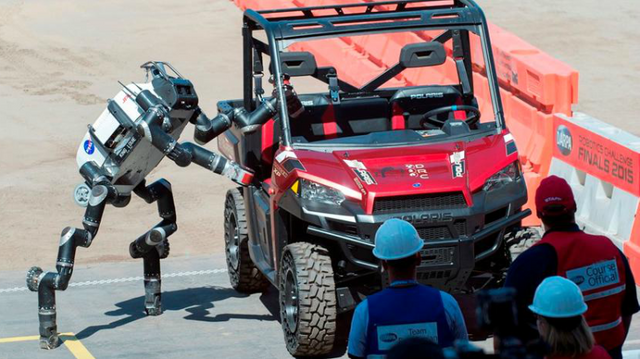Until Robots Start Designing Themselves, No Worries about Jobs
It is humans who build robots. The more bots scientists make, the more jobs for humans. With all the hype, robots cannot feed children; bathe them or do similar physical jobs. Robots are expensive, and makers still target tasks that are too expensive for humans to perform.

Credit: Scott Hargate
Robots mainly carry out tasks that are not viable for men and women. Studies reveal that robots perform jobs considered too dangerous for humans or that are economically untenable in high wage countries.
Humans and robots complement each other. Imagine humans detonating bombs, looking for victims after an earthquake or going to the cold regions of the moon. We should be happy that robots can step in and perform high-risk tasks.
Scientists are talking about lizard robots that can scale walls and rescue children and fight fires. Bee robots that can pollinate flowers and snake robots that crawl under fallen buildings. All these robotics were needed yesterday, and we should be happy about them because the work they do add value, but is beyond the human ability or are too dangerous to be done by humans.
It is true that robots, algorithms, and artificial intelligence will transform the workplace and automate human responsibilities, but human hands are not easy to kick out the workplace altogether.
A study from Redwood Software and the Centre for Economic and Business Research (CEBR) conducted in 23 countries over a period of 20 years indicates that we are not yet losing jobs to robotics. Instead, automation is adding more value to the economy compared to traditionally lucrative industries such as transportation and financial services.
True some people will lose jobs as more complicated, and technologically advanced robots enter the workplace. However, the impact will vary from business to business. Some employees stand a chance of being relocated or transferred to another department.
Robots have several advantages over humans. They are ‘smarter’ and quicker at the jobs they are designed to perform. They don’t get tired and are not distracted by anxiety and human frailties. They don’t need breaks or stamina and are free from human complications including lawsuits, injury, unemployment, 401k, and taxes.
Lets us embrace robots. It is good news for the job market. We should only start to be worried when robots start designing and making themselves. Of course, in most cases, there is a downside to all human creations. Robots are a minefield when it comes to ethical issues.
I can see the positive and negative aspect of introducing robots into our lives. Yes, they most certainly can help society at large. How wonderful it would be to have robots that can pollinate flowers for fruits and vegetables since we have basically destroyed the bee population. Yes, robots could be used to perform dangerous jobs. However, when they start taking jobs away from people, then we have to be careful. And, I can see a time, if we are not careful, when robots can be programmed to create other robots: robots who are smarter, faster, and able to much more than the average human.
You are spot on. When that time comes, we have nowhere to hide!